Health Care Professionals: Resources

Our national partner, Alzheimer Society of Canada, has a comprehensive website filled with valuable resources. We encourage you to visit it to access current opportunities about living with dementia.
Visit the Alzheimer Society of Canada website at: www.alzheimer.ca
Specifically, you can visit the section called, I’m a healthcare provider and National Resource Library.
CRADLE is available in multiple languages. The course can be completed as an individual or a group, in less than two hours. All those who complete CRADLE will be given a certificate.
A series of downloadable flyers for Health Care Professionals and their patients/residents.
Understanding Dementia – Challenging Behaviours
Understanding Dementia – Delirium
Understanding Dementia – Depression
Understanding Dementia – Pain
Understanding Dementia – Hallucinations
Understanding Dementia – Benzodiazepines
Understanding-Dementia – Confabulation
Understanding Dementia – Cannabis
Understanding Dementia – When Emotional Decisions Need to be Made
Understanding Dementia – Sexual Expressions
Understanding Dementia – De-Escalation in Dementia Care
Understanding Dementia – Holidays and Celebrations
Quick-Tips- 8 As of Dementia – Overview
Quick Tips – 8 As of Dementia – Anosognosia
Quick Tips – 8 As of Dementia – Amnesia
Quick Tips – 8 As of Dementia – Aphasia
Quick Tips – 8 As of Dementia – Agnosia
Quick Tips – 8 As of Dementia – Apraxia
Quick Tips – 8 As of Dementia – Apathy
Quick Tips – 8 As of Dementia – Attention Deficit
Quick Tips – 8 As of Dementia – Altered Perceptions
Quick Tips – Transitions to Long-Term Care
Quick Tips – Palliative Care and Dementia
We live in an increasingly multi-cultural and multi-faith world. Thirty years ago most residents living in Canadian long-term care and retirement communities were European-Canadian and Christian. Today a variety of religions and spiritual traditions, such as Buddhism and Hinduism, are practiced by residents and team members.
This brief and user-friendly multi-faith resource was created as a practical guide for all team members in retirement and long-term care settings.
The guide provides information on six major religions:
- Buddhism
- Christianity
- Hinduism
- Islam
- Judaism
- Sikhism
The guide provides the following information about each religion:
- A brief description of the religion and its major beliefs
- Holy Days, holidays, and ritual observances
- Caring practices during late life or illness
- Rituals and other practices that are important near the end of life
- Sacred texts, scriptures, and prayers that may provide comfort at times of distress or when someone is dying.
Source: Schlegel-University of Waterloo Research Institute for Aging (RIA)
Social prescribing is a proactive, wellness-based approach that connects individuals experiencing brain changes—such as memory lapses, difficulty concentrating, or mild confusion—with non-medical community services. These services include:
- Exercise classes
- Social clubs
- Art and music therapy
- Caregiver support groups
- Virtual and hybrid programs for homebound individuals




